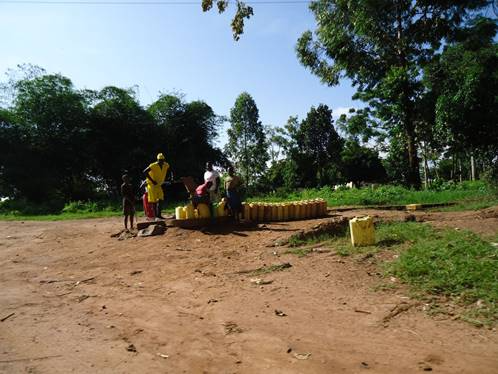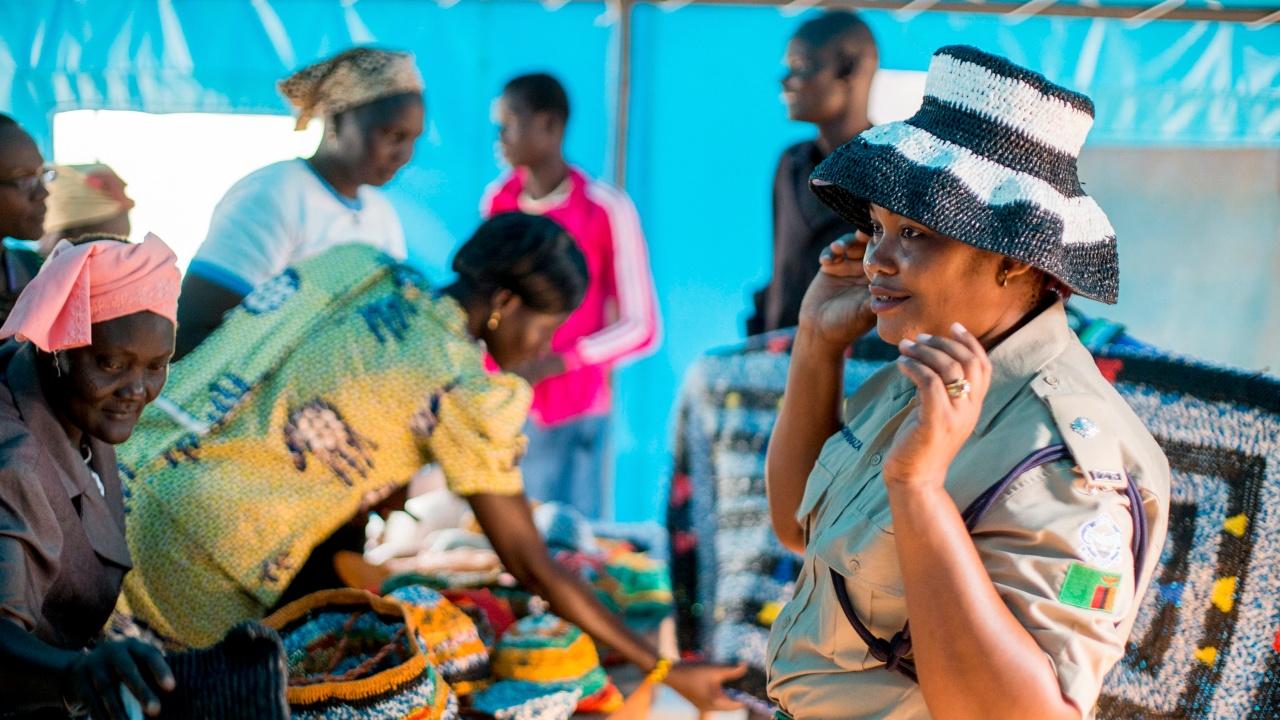The quality of service provision in Uganda varies greatly across regions and between villages, and yet evidence suggests citizens’ are unable to assess these differences. A research experiment used SMS messages about public services to help Ugandans make informed voting decisions, but it found no effect on voting outcomes. Here is why information alone is sometimes insufficient to affect political behaviour.
Like in many countries, citizens’ ability to access quality services from the government in Uganda depends upon where they live. Within even one district (Amalotar), some villages (Olake) have 38.5% of children in grades 3-7 able to read and do math at a grade 2 standard. Other villages (Obotomo) have only 3.3%. In the same district, it takes residents in some villages over 20 times as long to access clean water as residents in others. We document similar disparities in access to quality health clinics and roads.
One possible reason why some areas receive less adequate services from local governments is that citizens do not know how services in their area compare to other areas. Consistent with this explanation, we document substantial gaps in citizens’ ability to assess the quality of services: for instance, only 18% of the participants in our survey were able to tell us whether the quality of services in their village were substantially better or worse than the average village in their district. Lacking this knowledge, citizens may not be able to hold politicians accountable at the polls.

It is difficult to obtain this kind of detailed, local information in the traditional ways that people gain knowledge relevant to politics. Newspapers, radio announcements and television programmes typically convey information that is general to large areas, rather than specific to individual villages. The information campaigns by both good-governance groups and politicians are rarely tailored to the very local level.
An experiment to test electoral accountability
We conducted a large-scale experiment to test whether sending individualised, local and timely information tailored to the expressed information needs of prospective voters facilitated accountability at the polls. Unlike other informational campaigns in the context of elections, the key innovation of the treatment that we tested was to individualise information in ways that might have more impact than blanket information campaigns, which have largely proven to be ineffective at shifting voting behaviour.
To test the potential for individualised information, we conducted a civic intervention in partnership with Twaweza, a locally run good governance organisation in Uganda. We recruited 16,086 participants in a nationally representative sample of 762 villages in 27 districts to participate. Uniquely, to conduct this study, we took advantage of growing access to mobile phones in Uganda (we estimate over 55% of citizens had access to mobile phones in 2016 when the study was conducted). We sent participants a series of text messages over several days. The treatment messages provided participants with information about the quality of the public service they prioritised: roads, education, health services or water access in their village. The messages provided information about how services in the village differed from others in their sub-county or district, as well as offered examples of why services in the village were ‘better’ or ‘worse’ than most villages. Participants not in the treatment group received apolitical public services messages.
Contrary to expectations, we found that the information intervention did not affect voting. This is true regardless of whether respondents learned that their public services were worse than expected or better. We also found no evidence that the individualised information treatment worked in the groups that might be most expected to respond: voters with high levels of uncertainty, voters who attached great importance to public service provision when voting, and voters who received information that was supportive of their political alignments.
Yet, while we find no effect on voting, almost all (79%) of participant in a follow-up survey found the information valuable. Additionally, the intervention caused respondents to change their beliefs about public service quality in the short-term. But respondents did not change their voting behaviour. Why? While we cannot be certain, evidence points to several plausible explanations.
Our study indicates that Ugandans face real accountability and information gaps. These gaps suggest potential for mobile phones to effectively share civic information. Yet we argue the failure to influence political behaviour speaks to some of the challenges citizens face in interpreting performance information in complex decentralised environments. Uganda, famously, is one of the most decentralised countries in the world, with five separate layers of local governing authority. This makes attributing responsibility for local public service outcomes challenging for voters.
One possible lesson is that civic groups should pair information treatments with a civic education campaign that helps citizens make effective attribution decisions. Additionally, the results point to challenges in meaningfully changing beliefs in the context of elections where citizens are often inundated with competing information. While we find evidence that information changed beliefs about public services initially, these effects do not persist in the following weeks. Overall, the results point to a need for deeper engagement strategies over long periods of time.
—————————————–
This study was published as: Jablonski, Ryan S., Buntaine, Mark T., Nielson, Daniel L. and Pickering, Paula M. (2021) “Individualized text messages about public services fail to sway voters: evidence from a field experiment on Ugandan elections.” Journal of Experimental Political Science. Available here and as a pre-print here.
Additionally, this project contributed to a recent book on information and political accountability: Dunning, Thad, Guy Grossman, Macartan Humphreys, Susan Hyde and Craig McIntosh, eds. 2019. Information, Accountability, and Cumulative Learning: Lessons from Metaketa I. Cambridge University Press.
This study was funded by an anonymous donor as part of EGAP Metaketa I.
Photo: Photo by Kelly Lacy from Pexels.





